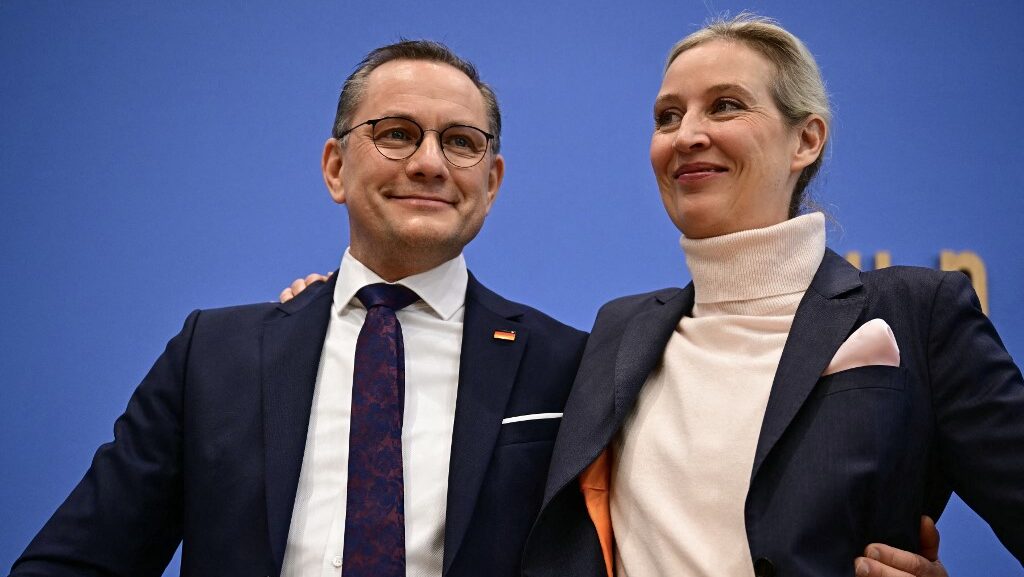The Christian Democratic Union (CDU) emerged victorious in Germany’s early election on Sunday, following a brief but highly intense campaign overshadowed by a series of immigration-related terror attacks. Friedrich Merz’s CDU secured 28.5 per cent of the vote, positioning the party to lead a coalition government tasked with addressing the country’s mounting challenges. The right-wing, anti-immigration Alternative für Deutschland (AfD) surged to become Germany’s second-largest party, garnering 20.8 per cent of the vote—more than doubling its support since the last election in 2021.
x.com
No Description
The governing parties suffered significant defeats. Chancellor Olaf Scholz’s Social Democratic Party (SPD) placed third, recording its worst election result since 1949 with 16.4 per cent. The Greens finished with 11.6 per cent, while Christian Lindner’s Free Democratic Party (FDP) failed to meet the 5 per cent threshold required to enter parliament. Meanwhile, Die Linke (The Left) experienced notable growth, securing 8.8 per cent and finishing fifth.
After declaring victory, Merz ruled out forming a coalition with the AfD, signalling a period of political instability and uncertainty for Germany in the weeks ahead. At present, the only viable coalition appears to be a so-called ‘grand coalition’ between the CDU and the SPD—though it is far from ‘grand’ given the electoral realignment that has reshaped Germany’s political landscape.
‘Despite the CDU’s win, mainstream parties suffered heavy losses’
Notably, despite the CDU’s win, mainstream parties suffered heavy losses. Collectively, the four centrist parties—CDU, SPD, FDP, and the Greens—received just over 60 per cent of the vote, compared to nearly 90 per cent in 2002. Merz expressed his intention to form a government by Easter, a goal that may prove difficult given the country’s internal security crisis, declining economic performance, and foreign policy challenges, including redefining relations with the United States and supporting Ukraine. Germany—and Europe as a whole—would benefit from a stable government with a clear mandate. The current outcome, however, is unlikely to provide that.
The Real Winner
Many argue that the true winner of the election is the AfD. The party nearly doubled its seats in the Bundestag and is expected to hold 152 seats. From being viewed as a ‘far-right’ fringe party, the AfD has entered Germany’s political mainstream, shifting the political centre significantly to the right. This shift is pressuring other parties to reconsider the long-standing political ‘firewall’ that has excluded the AfD from governance since its founding in 2013. AfD co-chair Alice Weidel celebrated the party’s historic success, taking aim at Merz, who had previously vowed to halve the AfD’s support: ‘They wanted to halve us, but the opposite has happened!’
Alice Weidel on X (formerly Twitter): “Zeit für die Entscheidung: AfD-Wahlabend live aus Berlin! https://t.co/uSsWX1SJoG / X”
Zeit für die Entscheidung: AfD-Wahlabend live aus Berlin! https://t.co/uSsWX1SJoG
While the SPD and the FDP face leadership crises—Lindner resigned following Sunday’s defeat—, the AfD is poised to continue the strategy that has resonated with a significant share of the German electorate: taking a hard line on migration and prioritizing national interests and pragmatic cooperation over ideology. Looking ahead, Weidel has already signalled her ambition to lead the party into the next federal election in 2029. ‘We will overtake the CDU/CSU. And then we will get a mandate to govern,’ she declared.
Hungarian Conservative on X (formerly Twitter): “The people of Germany voted for change in immense numbers. I want to congratulate @Alice_Weidel on doubling @AfD’s share of the votes. Good luck and God bless Germany! / X”
The people of Germany voted for change in immense numbers. I want to congratulate @Alice_Weidel on doubling @AfD’s share of the votes. Good luck and God bless Germany!
Hungarian Prime Minister Viktor Orbán, who hosted Weidel in Budapest during the campaign—becoming the first sitting European head of government to do so—congratulated her and the AfD in a post on X on Monday. ‘The people of Germany voted for change in immense numbers,’ Orbán noted. After their meeting, Orbán stated that he views Weidel and the AfD as ‘the future of Germany’.
Related articles:







